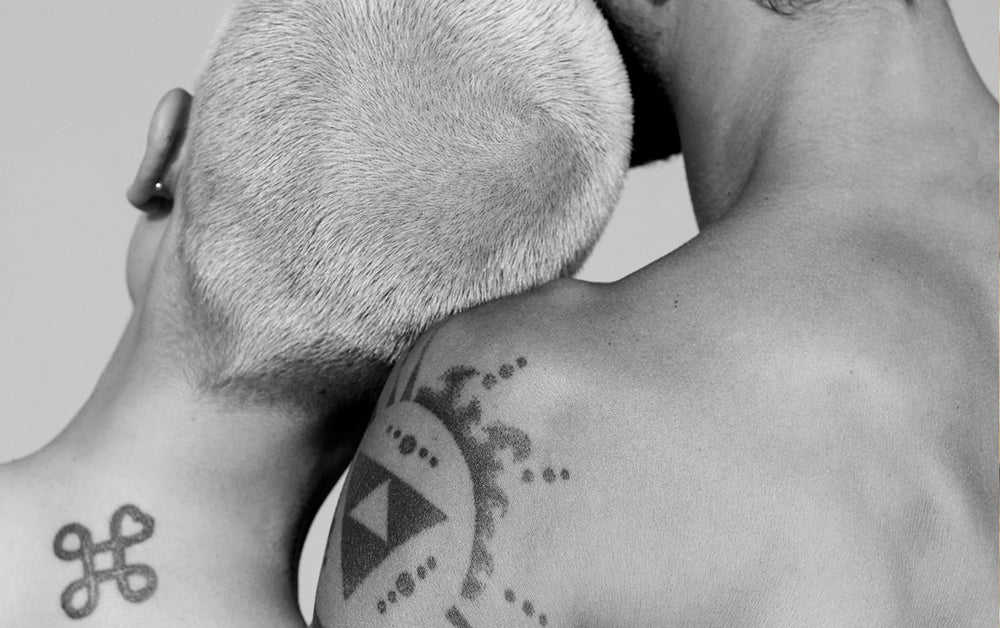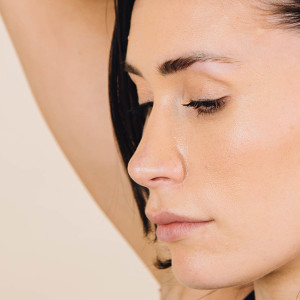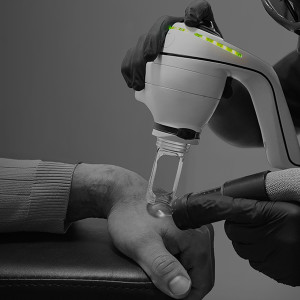
Dr Fiona Worsnop is a Consultant Dermatologist who practices for the NHS as well as on Harley Street.
She’s actively involved in shaping dermatology in the UK through her role on the British Association of Dermatology and has been awarded membership to the Royal College of Physicians. When Fiona’s not practicing medicine, she’s at home in South West London chasing after her two children. Here she lends her expert knowledge to answering the most-asked tattoo removal queries.
Publish Date in article
1. Will it hurt?
Laser tattoo removal can be painful. However, pain is subjective and the level of discomfort varies depending on the technology being used. With NAAMA's LightSense laser system, a lot of people find the treatments completely pain-free, while others find it about as painful as getting their tattoo in the first place. If you’re worried, take some paracetamol half an hour before your appointment (check with your GP first) and if you need to take a break during your session, that’s okay.
2. Will I get scarring?
It’s extremely unlikely you’ll get scarring with the LightSense® laser system. The beauty of this technology is that it eliminates tattoo ink whilst minimizing damage to the surrounding tissue. It’s worth noting, though, that sometimes ink has been hiding damage caused to the skin during the initial tattooing process, so just be mindful that removing your tattoo sometimes reveals this.
3. How long will it take for my ink to fade?
Quite simply, it varies. How quickly your immune system removes tattoo pigment depends on both genetic and lifestyle factors, so it’s impossible to say precisely how long your body will take to process the ink. Tattoos themselves also differ in terms of color and composition, which adds to the unknown. NAAMA can remove ink much more quickly than those using older technology because the studio can treat your tattoo more regularly. They go over your ink twice in each session and you can return for your next session every one to three weeks.
Every person and every tattoo is unique, so everyone reacts differently to treatment.
4. Will I get burned?
No. Sometimes your skin can become slightly swollen or red after treatment but this settles very quickly. NAAMA’s consultants are the best in the business so your removal sessions are totally safe. Just remember to keep your tattoo out of the sun.
5. Do I need a patch test?
Generally you do not need a patch test. In some cases, though, based on your skin type and your tattoo, NAAMA will perform one. This decision is made once the consultant physically sees the area to be treated.
6. Are there any side effects?
Side effects are very uncommon. You may have some redness or swelling around the area, and some people experience temporary changes to their skin’s pigment, but it's unlikely for the majority of people. If you do experience any side effects contact the NAAMA team immediately and we'll be happy to help. Email via hello@naamastudios.com.
Publish Date in article
7. Could I have an allergic reaction to laser tattoo removal?
It’s very unlikely you'll have an allergic reaction to laser tattoo removal. This happens only in rare cases and can occur when there has been a dormant infection in the treatment area.
8. Will I see results after each and every treatment?
This depends on you and your skin but you should see an improvement after each treatment. This might not be a perfectly linear process - you may see big improvements after some treatments, and smaller changes after others.
9. Does the age of my tattoo impact the process?
It can take slightly longer to remove older ink, even if your tattoo has faded. Ink is a foreign object in the body, so your cells are always trying to remove it. The reason tattoos are permanent is because the ink pigments are so much bigger than the cells tackling them, so they don’t have much luck. What can happen over time is that the ink becomes trapped within the cells trying to remove them. It can also drop deeper into the dermis, making it a little trickier to remove. That said, every person is different, and NAAMA's technology works on any age of tattoo.







